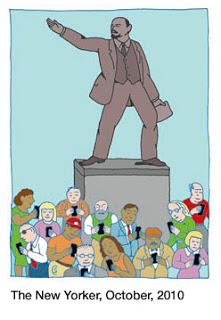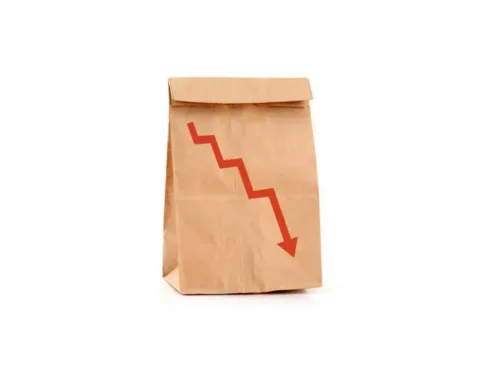
Malcolm Gladwell, journalist and author of significant acclaim, wrote an article which appeared in The New Yorker magazine’s October 2010 issue titled:
Small Change—Why the revolution will not be tweeted. [1]
It takes a while for the full thesis to unfold, but it is summarized in an image caption right at the start: “Social media can’t provide what social change requires.”
It turns out that Canadian-raised Gladwell has long been reticent to embrace social media as exuberantly as many other big thinkers in the business and marketing worlds. [2] Because of his stature as author of best-sellers The Tipping Point (2000), Blink (2005), Outliers (2008) & What the Dog Saw (2009), organizations devoted to new technology and media are constantly trying to get Gladwell to speak at their events. Had these groups done their homework a bit better, they would know that Gladwell is a qualified (as in thoughtful) advocate of what they hold most dear. For the cynical: this reticence is not a publicity stunt on Gladwell’s part. In fact, it’s a logical progression of the earlier thinking of his first three books, particularly Outliers.
The New Yorker article caused an up-roar amongst the new media cognoscenti. Apparently, Gladwell (despite earlier indications of big-braininess) “just doesn’t get it”, they said. Gladwell was blogged and twittered within an inch of his life, because the anonymity of social media makes it very easy for anyone and everyone to chirp from the cheap seats. The seems that the rules of formal debate—or those of Marquess of Queensberry—don’t apply here.
The rule of doing your homework before pontificating to the masses doesn’t seem to apply either. Even a cursory read of the whole New Yorker article clearly reveals Gladwell is not saying that social media isn’t revolutionising social culture or even marketing. He is saying that it cannot create the kind of grassroots, deep personal commitment that real social change requires—the kind of high-risk social activism like the American civil rights movement was in the 1960s & 1970s.
Too often in the marketing world, editorial opinions in traditional media and blogs in the social media universe read more like jargon-filled ads pitching what the author wants to sell. Or feels the need to protect from any form of perceived dissent.
Here’s what I hope my marketing peers take away from this regarding social media:
- There’s no editor or referee out there checking our facts, bias or manners, so it’s up to us. If you need some direction on the latter, ask Auntie E (see MW post THE GRACIOUSNESS OF “NO”).
- The difference between collaboration and self-promotion is fairly obvious to your readers.
- Lighten up already that social media may not be the 21st century’s greatest innovation. We’ve got 89 years to go yet.
- The New Yorker, October 2010, pg 42
- Globe and Mail, Malcolm Gladwell, The quiet Canadian, April 4, 2010.





